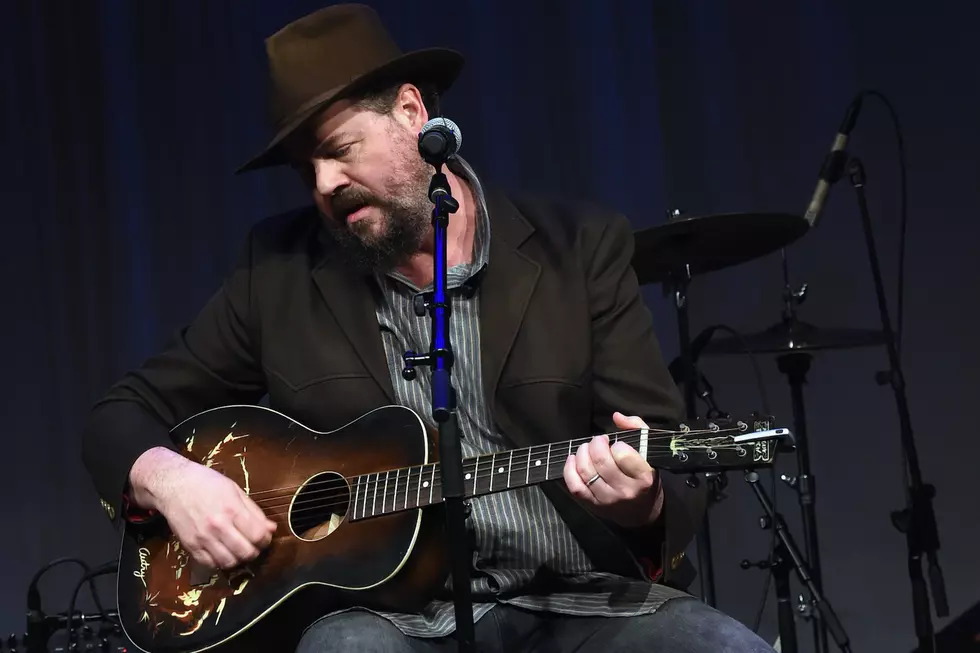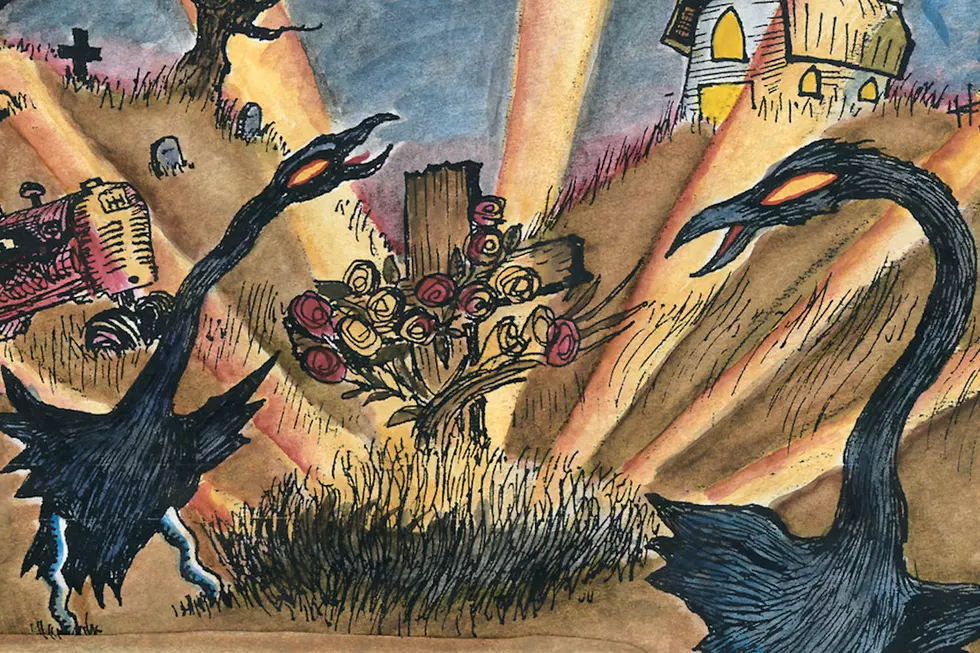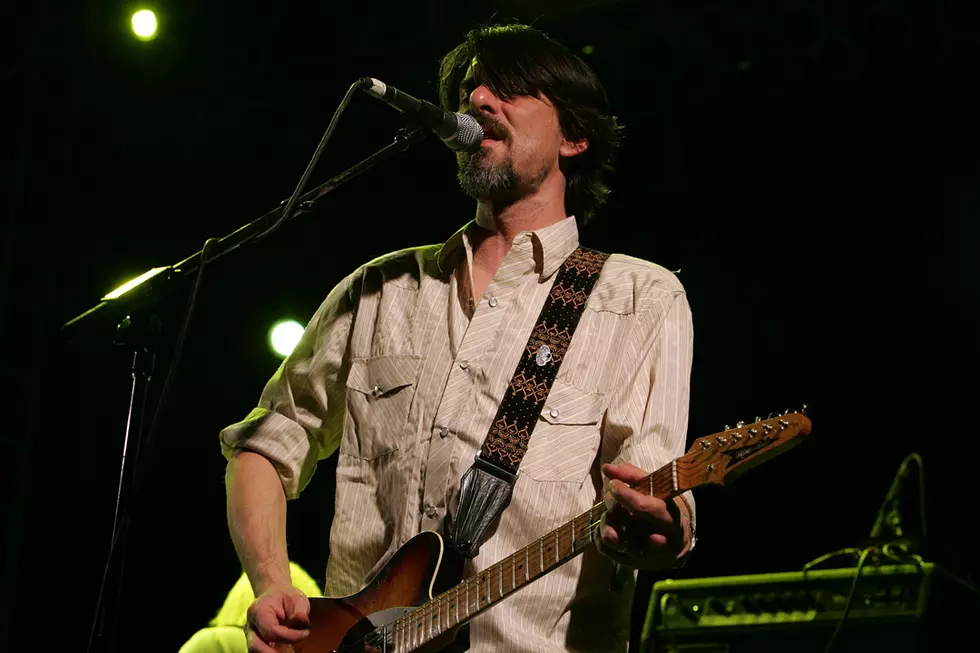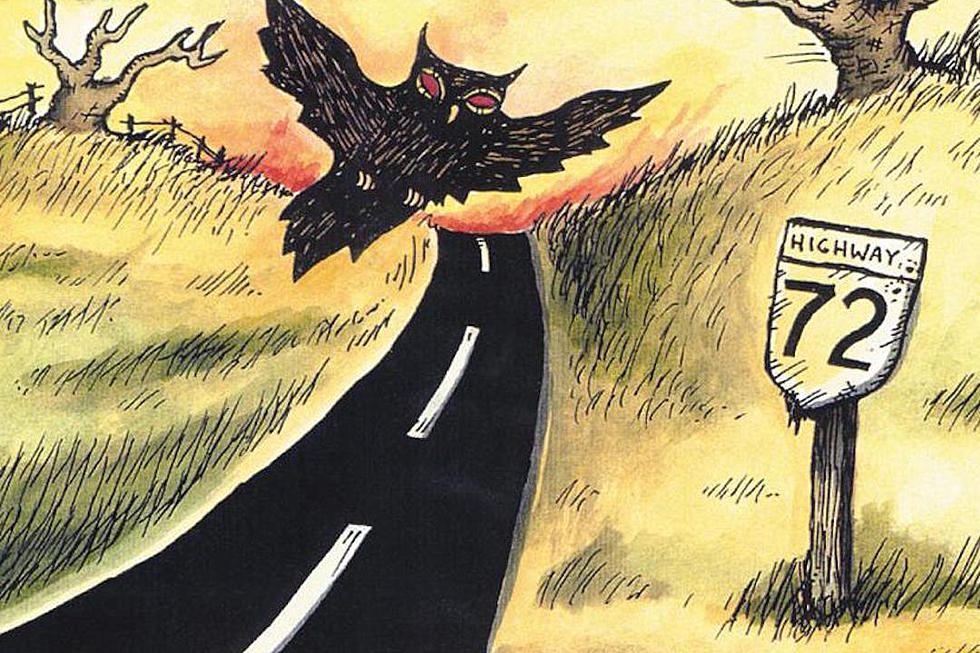
Drive-By Truckers’ Patterson Hood Doesn’t Care If You’re Offended
Patterson Hood has learned not to question inspiration, even when his muse takes the Drive-By Truckers into uncomfortable places. And, now more than ever, it does.
He thinks about history, and about the legacy of the place where he grew up, but also about the way that history plays out in the lives of his neighbors today, and about the place we're leaving for our children. Ideas come to him out of nowhere, from some part of him that remains unnameable, and he follows them – to whatever difficult place they may lead, to whatever awful realization. Lately, it's been toward the decidedly political.
"I would prefer for it not to be so, that aspect to be so in your face – but I follow the songs," Hood tells UCR. "I don't set out to write one, necessarily. Usually, the song kind of calls to me. My job is just to see it through and make it the best it can be."
Hood's earliest, best ideas once emerged from his fertile Alabama upbringing, but they're not bound to that anymore. More recently, Hood has been coming to grips with the notion that too many of these problems are universal, taking place well beyond the old North/South dichotomy. He's reaching for bigger things. He sees the patterns now.
"I love reading history and studying history," Hood says. "I'm endlessly fascinated by it. I'm endlessly fascinated by politics too. I've studied and kept up with politics from a really early age. If I ever went back to school, history and political science are probably the two things I'd most likely want to study. And of course, they're interconnected. You really don't understand current politics unless you have a pretty good grasp of the history behind it."
This set him apart from those around him growing up, and it sets him apart today. The Drive-By Truckers make a sound that recalls and amplifies the music of his childhood, a flinty blend of rock and country and blues that defined Lynyrd Skynyrd and the Allman Brothers Band and a thousand other shaggy bands since.
But what he says nowadays is something else entirely. He's a preacher with an entirely different set of gospels. These aren't songs that celebrate country living or some lost cause. This is music that challenges the expected standards, that tries to embolden us all to better ways, to better days.
More recently, Hood left the South. And in a strange turn of events, he found he loved it that much more. In absentia, Hood came to understand its passions more completely, found a new pathway to resolving some of its many conundrums. He discovered perspective not as someone fighting their way out, but as a guy who was far removed.
Listen to Drive-By Truckers' 'Ever South'
He composed a song about it, of course. "Ever South," one of his very best, uncovered truths that simply weren't there yet in older tracks like 2001's "The Southern Thing," written when Hood was still perhaps too close to the subject. Absence didn't just make the heart grow fonder; the sight lines from Portland, Ore., offered broad new vistas.
"'Ever South' sort of wrote itself," Hood says. "I think 'Ever South' is a much better song than 'The Southern Thing.' 'The Southern Thing' has a great guitar hook. It's a good rocker, it's always a crowd-pleaser when we do it – though we don't do it very often. But lyrically, I don't think it's one of my stronger songs. It ends well, but it's not one of the strongest things I ever wrote. But I think 'Ever South' is; I think that's one of the best things I've ever written."
Hood pulls no punches. His birthplace was also home to America's original sin, and no amount of gentrification can purify that. Yet there are things worth celebrating still, things worth believing in. He retained a shrewd ability to delineate the South's storied contradictions, even as he began to realize that those aren't the only contradictions worth investigating.
In this way, Hood represents something new, something that could make good. He is somebody who always saw the past for what it was: Something to be studied and then built upon, rather than accepted and acquiesced to. Two decades in, he seems to have discovered a new voice, a new track for sharing his perspective, but this time directed out at the wider world. He sees a bigger picture.
It hasn't been easy, and he's risked a lot. Somebody who sounds like the very best of Southern rock, but talks with such brutal honesty about where we've been, and the bad roads that could very well lay ahead, can easily isolate himself in this age of tribalism.
"I can't really think about that," he says. "If something like that happens, it's sad and it's unfortunate to me. But I'm going to follow the songs. If they lead me somewhere that alienates fans, I'm sorry. That's the risk of being an artist. We never got into this trying to kiss anybody's ass, trying to censor to please or not displease somebody, and I'm not going to start now. Especially something I feel as strongly about."
Hood isn't interested in playing the game. His goal is to tell certain truths, to speak from the heart, and he sees that as his art. It's not about selling records, or tickets, or T-shirts. It's about connecting, about seeing where the songs go. He hopes there's an audience for them, hopes there are other people who are looking for the same unvarnished truths, hopes that there's a shared community beyond the prepackaged dichotomy that drives TV ratings.
But he's not beholden to that. The songs won't let him be. Those are, after all, only hopes. And hopes are often dashed. Things don't always work out. People turn away. They return to the comfort of their opinion silos. They unfriend. Don't look for Hood to stop, though – not now. As he's matured into one of his generation's most trenchant, brutally frank songwriters, he's become emboldened.
Listen to Drive-By Truckers' 'What It Means'
Hood started out writing with frank realism about battling a fatal disease on "The Living Bubba" from the Drive-By Truckers' 1998 debut, and the sad and slow deterioration of youth on 1999's "Box of Spiders." He followed Skynyrd to their swampy graves on 2001's Southern Rock Opera, dealt unflinchingly with the compromises of a relationship on 2003's "Heathens," and with suicide on 2008's Decoration Day. He explored the bitter loss of dreams on 2011's "Used to Be a Cop," and the uncertainty of it all on 2014's "Grand Canyon."
But those kind of delicately conveyed character sketches don't define his work right now. American Band, the Drive-By Truckers' most recent album, sought to frame things that were very much in the here and now. Hood turned in meditations on the 2015 mass shooting at Oregon's Umpqua Community College, and the deaths of unarmed youths at the hands of law enforcement on "What it Means." Then, in between albums, he grappled with the country's increasingly poisonous political climate on 2017's "The Perilous Night."
He's taken no prisoners. And in doing so set the Drive-By Truckers apart in an age where the concepts of positioning and strategy often trump raw creative impetus. He wants better things for his old home place, but also sees now how its problems play out elsewhere. His songs strike now with brutal force. He's never wielded a sharper creative blade.
"A song like 'Guns of Umpqua,' I thought about writing something about that topic for a pretty long time – because Lord knows, it keeps happening," Hood says. "After Sandy Hook, I was so paralyzed with grief over what was happening in our country that I just wasn't able to write anything. I think the closeness I felt with 'Guns of Umpqua' was because I had actually spent the night in that town shortly before that. I had breakfast with my family in a public place right down the street from that college, so I had a very strong sense of the place – of what the place looked like and felt like. I was sitting on my front porch on a beautiful, beautiful fall morning on the morning of that shooting, hearing about that just about in real time. I'm thinking, 'How can something like this happen in such a beautiful place, on such a beautiful day?' And that's what led to the writing of that song."
There may be no more interesting Southern man, even if he lives hundreds of miles away. Maybe especially so. Distance has provided Hood with perspective: Rather than surrendering to a heart-splashing sense of reminiscence, he's hardened his convictions. He thinks he's on the right side of these topics, on the right side of history.
"Honestly, I can't really imagine being offended," Hood concludes. "To me, if you are offended, you're being unreasonable, and I don't have anything to say to you. I really don't. It's not like we're burning the flag, or taking a shit on something. We're talking about things like love and simple human decency. You know, 'Don't be an asshole.' I think it's very reasonable. It's kind of amazing to me that people do get so pissed off about it."
Hood pauses to take it all in for a moment, then he comes out swinging. "It's like, 'I guess fuck you, then,'" he laughs.
See Drive-By Truckers in the Top 25 Southern Rock Albums
More From Diffuser.fm










